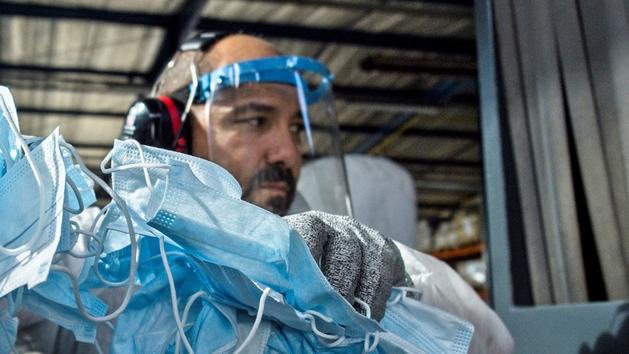Recycling used disposable masks to make ecological plastic objects: this is the idea of Plaxtil, a start-up created a year ago in Châtellerault (Vienne).
This initiative was born last June when the Covid-19 epidemic rebounded, prompting many municipalities in France to make the mask mandatory.
With inevitable consequences in terms of road and water pollution, etc.
Initially, it was a pilot experiment conducted with a local integration association.
In three months, the company collects 70,000 masks in the 50 collection points set up in the city.
But the success is such that the two co-founders, Olivier Civil and Jean-Marc Neveu, should extend this experiment until the end of the year and amplify it: 200 terminals should be installed in the city.
And, starting this fall, Plaxtil will be deployed in several neighboring regions.
At the same time, expressions of interest are pouring in, from SMEs as well as CAC 40 companies, in France and abroad.
And for good reason: it is the first - and only - circular mask recycling solution that exists to date.
"We want to provide a global and circular solution to manufacturers and distributors who have this problem of waste",
explains Olivier Civil.
It's not just about collecting the masks.
With Plaxtil, the sender of the waste must reuse or resell the recycled material.
At the end of July, the company was contacted by Bercy, which is working on recycling masks.
Elected officials follow one another on site to discover the Plaxtil process.
The masks, made up of over 90% polypropylene, are first quarantined for four days and then crushed.
They then pass through a UV tunnel to be decontaminated.
"Alone, we cannot do everything,"
said the leader.
The establishment of a national mask recycling network requires the effective commitment of the public authorities. ”
Le Figaro
Society, health, environment, education, energy
»Discover the actors and initiatives of change







